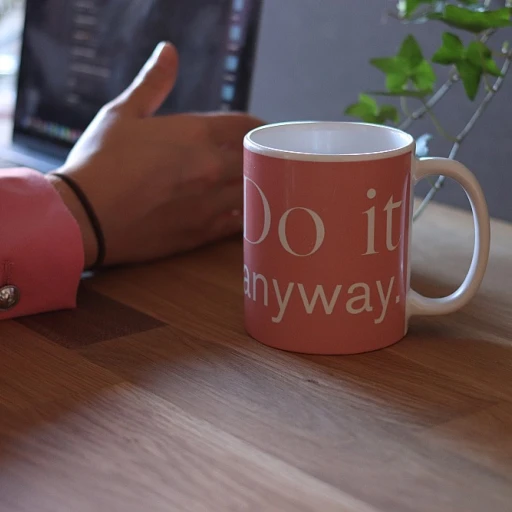
Understanding the purpose behind interview questions
Why Interview Questions Matter in Hiring
Every interview question serves a purpose. The right questions help you dig deeper than a candidate’s resume, revealing how they think, solve problems, and fit into your company’s work environment. When you ask a great question, you’re not just checking off a list—you’re assessing if the candidate has the skills, experience, and mindset to thrive in the role and contribute to your team long term.
Getting Beyond the Surface
It’s easy to fall into the trap of asking generic questions that don’t tell you much. Instead, focus on questions that encourage candidates to describe a time they handled a challenge, or to explain how they would handle a specific situation. These behavioral interview questions help you understand how someone has acted in the past, which is often the best predictor of future performance. For example, asking a candidate to describe a situation where they had to adapt quickly can reveal their problem solving and decision making skills.
Connecting Questions to the Job and Team
Every role and company culture is unique. That’s why it’s important to tailor your interview questions to reflect the actual work environment and the soft skills that matter most for your team. This approach will help you assess whether a candidate will thrive in your company and stay engaged for the long term. If you’re looking for practical tips on managing your interview process, including how to reset your workday password as a recruiter, check out this step-by-step guide for recruiters.
Building a Foundation for Better Hiring Decisions
Effective interview questions are the foundation of a strong hiring process. They help you evaluate not just technical skills, but also how a candidate will handle real challenges and interact with your team. As you move forward, consider the types of questions that reveal true potential, how to avoid common pitfalls, and how to evaluate responses to make informed decisions about who will be the best fit for your company.
Types of questions that reveal true potential
Uncovering Skills and Mindset Through Strategic Questions
When interviewing candidates, the right questions help reveal more than just technical skills. They uncover how a candidate thinks, solves problems, and fits within your team and company culture. The goal is to go beyond surface-level answers and get a sense of how someone will handle real work situations. Behavioral interview questions are especially effective. These questions ask candidates to describe a time they faced a challenge, worked in a team, or handled a difficult situation. For example, asking, "Can you describe a situation where you had to adapt quickly to change?" gives insight into adaptability and decision making. Another great question is, "Tell me about a time you had to resolve a conflict at work." This helps assess a candidate's communication and problem solving skills. Situational questions are also valuable. These questions present a hypothetical scenario and ask how the candidate would handle it. For instance, "If you were given a tight deadline on a project, how would you prioritize your tasks?" This type of question helps you evaluate how a candidate approaches challenges and manages time under pressure. Soft skills are just as important as technical abilities. Questions that explore teamwork, leadership, and adaptability can help you assess if a candidate will thrive in your work environment. For example:- "Describe a time you worked on a team project. What role did you play?"
- "How do you handle feedback from colleagues or supervisors?"
- "Can you give an example of how you contributed to a positive company culture in your previous job?"
How to tailor questions to your company culture
Aligning Questions with Your Unique Work Environment
Every company has its own DNA, and the interview questions you ask should reflect that. When you tailor your questions to your company culture, you’re not just assessing technical skills—you’re evaluating how well a candidate will fit and thrive in your specific work environment. This approach helps you identify candidates who will contribute positively to your team and stay for the long term. Think about what makes your company different. Is it fast-paced and innovative, or more structured and process-driven? Do you value collaboration, autonomy, or creative problem solving? Your questions should help you uncover whether candidates share these values and can adapt to your way of working.- Ask behavioral interview questions that focus on real experiences. For example, “Can you describe a time when you had to adapt quickly to a major change at work?” This question helps you see how a candidate handles uncertainty, which might be crucial in a dynamic company.
- Use scenario-based questions to assess decision making and soft skills. For instance, “Describe a situation where you had to resolve a conflict within your team. How did you handle it?” This will help you understand if the candidate’s approach matches your team’s style.
- Include questions that highlight your company’s values. If teamwork is essential, ask, “Tell us about a time you collaborated with others to achieve a goal. What was your role?”
Avoiding common pitfalls when questioning candidates
Common Traps to Avoid When Questioning Candidates
Interview questions are powerful tools, but even experienced hiring managers can fall into traps that undermine the process. Here are some pitfalls to watch out for when you’re assessing candidates:- Leading or closed questions: Questions that hint at the desired answer or can be answered with a simple yes or no rarely reveal a candidate’s true skills or experience. Instead, use open-ended questions like “Describe a time you had to handle a challenging situation at work.” This approach helps you assess problem solving and decision making abilities.
- Overly generic questions: Asking every candidate the same broad questions (“What are your strengths?”) may not help you understand how they’ll fit your team or company culture. Tailor your questions to the specific job, work environment, and the skills that matter most for long term success.
- Ignoring soft skills: Focusing only on technical skills or experience can lead to missing out on candidates who excel in communication, adaptability, or teamwork. Behavioral interview questions like “Can you describe a situation where you had to work with a difficult team member?” will help you assess these essential qualities.
- Asking hypothetical instead of real-life examples: Hypothetical questions (“What would you do if…?”) don’t always show how a candidate has handled situations in the past. Behavioral questions that ask candidates to describe a time they faced a real challenge provide more insight into their actual experience and approach.
- Rushing the interview process: Not giving candidates enough time to answer or moving too quickly through questions can prevent you from seeing their best qualities. Allow space for thoughtful responses, and don’t be afraid to ask follow-up questions if you need more detail.
- Failing to clarify or probe deeper: If a candidate gives a vague answer, ask them to elaborate. Questions like “Can you describe how you handled that?” or “What was the outcome?” help you get a clearer picture of their skills and experience.
Examples of good questions to ask candidates in an interview
Sample Questions That Reveal Candidate Potential
- "Can you describe a time when you faced a challenging problem at work? How did you handle it?"
This behavioral interview question helps assess a candidate’s problem solving skills and decision making process. Look for clear examples and logical steps taken to resolve the issue. - "Tell us about a situation where you had to adapt quickly to a change in your work environment."
This question helps you understand how candidates handle uncertainty and change, which is crucial for long term success in dynamic teams. - "What motivates you to do your best work?"
This question helps you see if the candidate’s values align with your company culture and if they will thrive in your team. - "Describe a situation where you had to collaborate with a difficult team member. What was the outcome?"
This is a great question to assess soft skills, such as communication and teamwork, which are often as important as technical skills for most roles. - "What do you know about our company, and why do you want to work here?"
This question helps gauge a candidate’s interest in the job and their understanding of your company’s mission and values. - "Can you give an example of a goal you set and how you achieved it?"
This question helps you evaluate a candidate’s drive, planning, and follow-through abilities. - "How do you prioritize your tasks when you have multiple deadlines?"
This question helps you understand the candidate’s time management and organizational skills, which are critical in fast-paced work environments.
Tips for Asking Effective Interview Questions
- Focus on open-ended questions that encourage detailed answers rather than simple yes or no responses.
- Mix behavioral interview questions with situational ones to get a fuller picture of the candidate’s experience and approach.
- Tailor your questions to the specific role and your company’s unique needs. For example, if teamwork is essential, include more questions about collaboration.
- Be mindful of the time spent on each question to ensure a balanced interview process and allow the candidate to showcase their best qualities.
Using Candidate Responses to Inform Hiring Decisions
When evaluating answers, look for specific examples, clear logic, and alignment with your company’s values. The way a candidate describes a situation or handles a question can reveal much about their fit for the role and your team. Consistency in responses across different questions helps you assess candidate reliability and depth of experience. Ultimately, great interview questions help you make informed, confident hiring decisions.
Evaluating responses and making informed decisions
What to Look for in Candidate Responses
When evaluating answers during the interview process, focus on more than just the content. Pay attention to how candidates structure their responses, their ability to describe a situation clearly, and whether they can explain the steps they took to handle a question or problem. A great question helps you assess not only hard skills but also soft skills, such as communication, adaptability, and decision making.
Assessing Problem Solving and Experience
Behavioral interview questions, like "Describe a time you had to solve a difficult problem at work," reveal how a candidate approaches challenges. Listen for specific examples that show their role in the situation, the actions they took, and the results. This approach helps you understand if their experience matches the job requirements and your company culture.
- Clarity: Does the candidate answer the question directly and clearly?
- Relevance: Are their examples related to the skills and responsibilities of the role?
- Depth: Do they provide enough detail to show their thought process and impact?
- Reflection: Can they explain what they learned or how they would handle a similar situation differently?
Comparing Candidates Fairly
To make informed hiring decisions, use a consistent set of interview questions for all candidates. This helps you compare their answers objectively. Take notes on how each candidate describes their experience, handles challenging questions, and demonstrates alignment with your team and company values.
Making the Final Decision
After the final interview, review your notes and consider how each candidate’s responses align with the job requirements and work environment. Look for patterns in their answers that show long term potential and cultural fit. The best candidates will help your team grow and adapt, not just fill a role.













